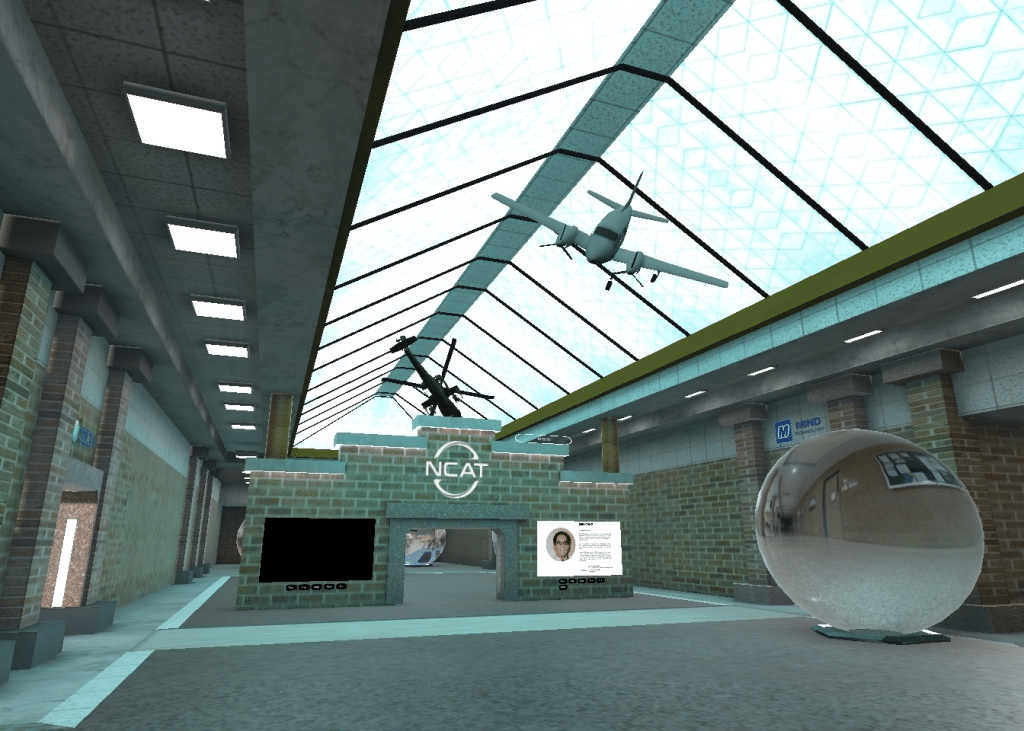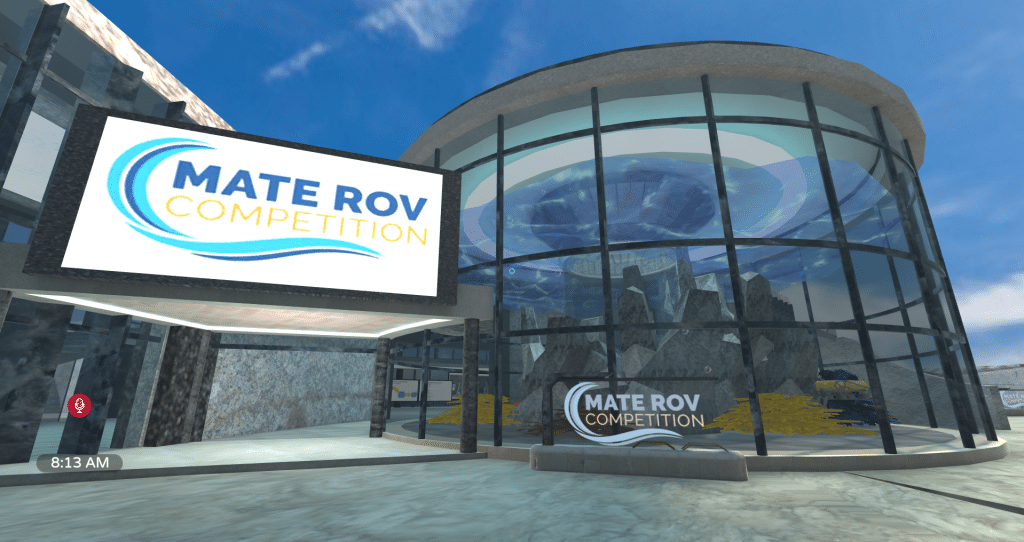Cancelled due to COVID-19 – those words were ubiquitous across websites and communication channels for any event, big or small in 2020. The world quickly turned to virtual platforms, such as Zoom to interact for education, work and event visiting with family and friends as a means of communication during times of quarantine and distance-learning. The National Center for Autonomous Technologies (NCAT) quickly realized the significant impact that COVID-19 and a global pandemic was going to have on the learning environments and made a shift towards utilizing Virtual Reality for social engagement. Hosting some of the earliest educator workshops and events in Virtual Reality, NCAT began teaching the educators how to use the technology in their classroom to maintain the distance learning environment.

Virtual Reality, specifically Social Virtual Reality, in times of COVID-19, facilitated distance learning and allowed for students to have that same in-person experience that is key to any learning environment. I can design a course in VR where the students that aren’t able to make it face-to-face get the same experience as the students that are in the classroom. All students get the same experience, the same material, and the same equipment so there isn’t a disconnect.”
Mark Gill | Visualization Engineer, SCSU VizLab & Senior Personnel, NCAT

The NCAT Community provides tremendous support beyond the classroom, through educator workshops, STEM camps. and competitions that engage families and the general public in an awareness of autonomous technologies education, exciting careers and the future workforce. In October 2020, NCAT offered their first Virtual Reality Educator Workshop on Autonomous Vehicle Technology Sensors across Air, Land and Sea. Through hands-on experience and discussion, attendees were equipped to use this technology in their classroom using portable, cost efficient experimentation and exercises. “The interaction with others in the virtual conference was positive. I felt like I was more in a conference environment than just doing a screen sharing presentation or Zoom meeting,” described one of the workshop attendees.
Following the success of the first Virtual Reality Educator Workshop, NCAT and partners gathered to reimagine future activities, which included the MATE ROV Competition. The MATE ROV Competition, developed by NCAT Partner, MATE Inspiration for Innovation, is a global underwater robotics challenge that tasks teams of students to design and build an underwater robot to compete a set of tasks based on real-world scenarios – ranging from exploring shipwrecks to installing scientific instruments on the seafloor. “While the pandemic may have forced MATE to cancel last year’s competition, it also inspired us to think differently, to be creative and to innovate – which is exactly what MATE Inspiration for Innovation aspires to do when we present the real-world challenges to students participating in the competition,” explained Jill Zande, President and Executive Director of MATE Inspiration for Innovation and CO-PI for NCAT.
Working together, NCAT and MATE reimagined the 2021 MATE ROV Competition to include not only in-person and telepresence events, but also a virtual world that enables students and mentors from around the globe to experience the competition even if they can’t participate in-person.
The 2021 MATE ROV Competition VR World will allow MATE to facilitate the social interaction, peer-to-peer networking, and shared experience that students value and appreciate most about the MATE ROV Competition – and are especially craving during the time of this pandemic.”
Jill Zande | President & Executive Director, MATE II & Co-PI, NCAT
The emergence and inescapability of Social VR is changing STEM education, STEM fields, and the STEM related technician workforce. “Not only has the use of virtual and augmented reality reduced the amount of time and money it takes to attend certain events, giving broader access for participants, it has become a source for exciting supplemental activities, providing students and faculty with the necessary core experiences needed in a learning environment,” described Jonathan Beck, Executive Director and Principal Investigator for NCAT. The integration for VR, simulations, advanced video capture and other digital technologies are enabling new learning environments, increasing our knowledge, understanding and retention.


